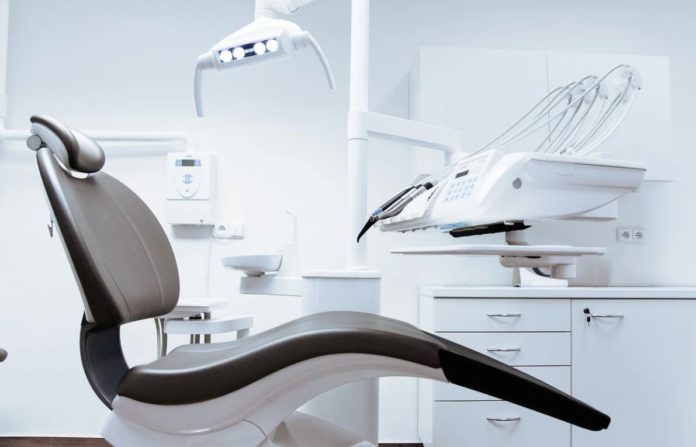Data from a review of 15 studies find that a lack of this Vitamin causes this disorder, as well as other problems. Philippe Hujoel, the main author of the work, clarifies the importance of the study
There is no better way to compare how our oral health is like than provided by the study, according to which around 85% of the US adult population suffers from some type of problem periodontal.
- Does This Mean We Stopped Being Animal and Started Being Human Due to ‘Copy Paste’ Errors?
- The One Lifestyle Choice That Could Reduce Your Heart Disease Risk By More Than 22%
- Aging: This Is What Happens Inside Your Body Right After Exercise
- Immune-Boosting Drink that Mimics Fasting to Reduce Fat – Scientists ‘Were Surprised’ By New Findings
- Gun Violence in America: What They Don’t Talk About at the Debate
Gingivitis and periodontitis are the two pathologies, along with cavities, that compatriots suffer the most. Two evils that do not have a single origin, but that are exacerbated by lifestyle habits, where smoking, alcohol intake and stress take the honors in waking them up. These problems always start with bleeding gums when brushing teeth. But if they are not stopped in time, they can end up causing greater evils. For this reason, as we will see below, good oral hygiene and regular dental check-ups are essential.
According to the U.S. Dental Association states: “If your gums bleed, be sure to brush and floss twice a day because it could be a sign of gingivitis, an early stage of periodontal disease.” And now new clues are coming in from a new study from the University of Washington suggesting that you should also monitor your vitamin C intake.
“When you see bleeding gums, the first thing you think of is, ‘I’m not brushing anymore.’ You should try to figure out why. And a deficiency of the nutrient listed above is a possible reason,” says the study’s lead author, Philippe Hujoel, practising dentist and professor of Oral Health Sciences at the University of Washington School of Dentistry, in his press release announcing this work.
As he clarifies: “The most important implication of gum bleeding is asking questions about why it happens. Is it because of a high sugar intake? Is it because of being on a low-dose aspirin regimen? Is it because of low vitamin C? If your gums show a tendency to bleed and your vitamin C intake is low (<80-100 mg per day), then you should consider increasing your intake to approximately 100-200 mg / day, adding foods rich in this nutrient in the diet. Brushing and flossing is not the answer to correcting a low vitamin C intake.”
And it may not be the only deficiency we need to pay attention to. We are talking about another vitamin, D. A study, published by the ‘Journal of Canadian Dental Association’, stated that its lack is also related to oral health problems.
A review of 15 studies
Hujoel’s work, published in ‘Nutrition Reviews’, analyzed published studies of 15 clinical trials in six countries, with 1,140 predominantly healthy participants and data from 8,210 US residents, all members of the Health and Nutrition Examination Survey of the Centers for Disease Control and Prevention (CDC).
- Does This Mean We Stopped Being Animal and Started Being Human Due to ‘Copy Paste’ Errors?
- The One Lifestyle Choice That Could Reduce Your Heart Disease Risk By More Than 22%
- Aging: This Is What Happens Inside Your Body Right After Exercise
- Immune-Boosting Drink that Mimics Fasting to Reduce Fat – Scientists ‘Were Surprised’ By New Findings
- Gun Violence in America: What They Don’t Talk About at the Debate
The results showed that gum bleeding or a tendency to gingival bleeding, and also bleeding in the eye or retinal hemorrhage, were associated with low levels of vitamin C in the bloodstream. And the researchers found that increasing the daily intake of this vitamin in those with low plasma levels helped reverse these bleeding problems.
Of potential relevance, says Hujoel, is that “both the bleeding gums and the bleeding of the retina could be a sign of a general problem in the microvascular system, which affects both the brain and the heart or kidneys.”
However, it is important to remember that “the study does not imply that vitamin C prevents strokes or other serious health problems,” emphasizes Hujoel.
Scurvy
He insists: “However, the results indicate that vitamin recommendations designed primarily to protect against scurvy, a deadly disease caused by extremely low levels of scurvy, are too low and such limited intake can lead to a tendency to bleed, that it should not be treated with flossing.”
As a result, Hujoel recommends that people try to monitor their vitamin C intake by incorporating unprocessed foods such as kale, pepper, oranges or kiwis into their diet, and if tasty foods rich in vitamin C cannot be found, a supplement of approximately 100 to 200 milligrams per day should be considered.
And, above all, as the researcher says to this journal, “people who smoke or drink substantial amounts of alcohol have a higher requirement of vitamin C. Some specialists therefore recommend doubling intake should approximately be 200 to 400 mg/day.”
